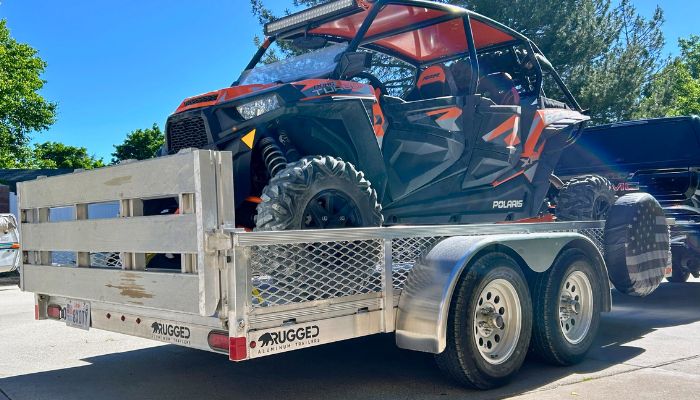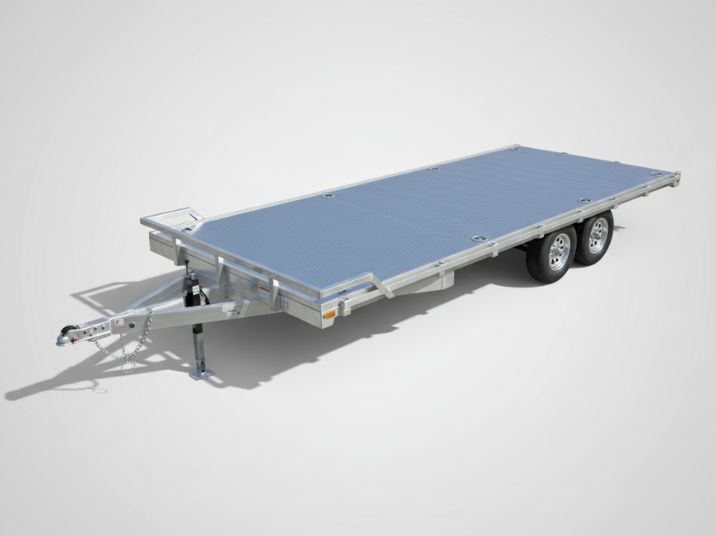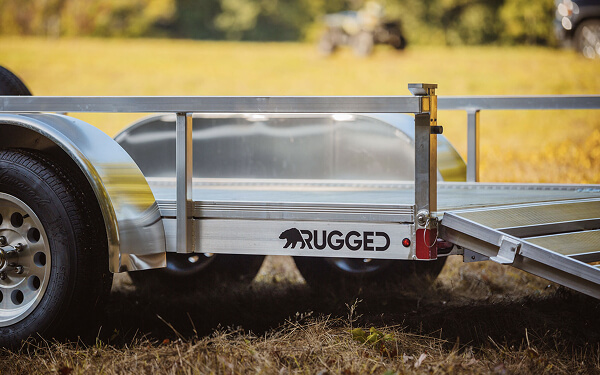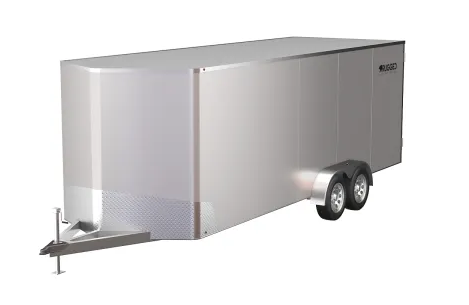Are aluminum trailers worth the money?
Is an Aluminum Trailer Worth the Extra Cost Compared to Steel?
If you’ve been comparing trailers online, you’ve probably noticed that aluminum models usually cost more than steel ones. It’s a fair question to ask: is that higher price really worth it? The short answer is that for most people who tow regularly or live in places where corrosion is a concern, aluminum is absolutely worth it. But to make a smart decision, it helps to understand why aluminum costs more and how those differences play out over time.
Why Aluminum Trailers Cost More
Aluminum trailers start out more expensive because of the materials and the process it takes to build them. High-grade aluminum, like 6061-T6 alloy, costs more than mild steel. It also takes specialized equipment and experienced welders to build a fully welded aluminum frame. The designs are engineered with thicker extrusions and corrosion-resistant stainless hardware, which adds to the cost. So, while steel is cheaper to buy up front, aluminum’s precision manufacturing and long-term performance are what you’re really paying for.
How Much Lighter Is Aluminum?
One of the biggest differences between aluminum and steel trailers is weight. Aluminum trailers are typically 20–40% lighter than their steel counterparts. That means you can haul more payload for the same gross vehicle weight rating, and your tow vehicle doesn’t have to work as hard. Less strain on the truck translates into better fuel efficiency, easier handling, and less wear on brakes and suspension. Over years of use, those small advantages add up.
Do Aluminum Trailers Rust?
This is where aluminum really stands apart. Aluminum doesn’t rust. Instead of corroding like steel, it naturally forms a thin oxide layer that seals and protects it from further damage. For anyone towing in the Northeast, Midwest, or along the coast, that’s a game changer. Road salt, humidity, and rain can take a steel trailer from shiny to flaking in just a few seasons. An aluminum frame will look nearly new for decades with little more than an occasional rinse.

Maintenance and Longevity
If you’ve owned a steel trailer, you know how much maintenance they take — grinding, painting, and constantly fighting rust. With aluminum, there’s almost none of that. You don’t have to repaint or undercoat, and there’s no frame rot to worry about. That translates into fewer repair bills and less time in the shop. Over a 10-year period, those savings often match or exceed the upfront cost difference.
Resale Value
Because aluminum trailers stay cleaner and stronger over time, they hold their value better. Even after years of use, they typically sell for 25–35% more than a similar steel trailer of the same age. If you plan to trade in or resell, that matters — you’ll likely recover a large chunk of what you spent up front.
When Steel Still Makes Sense
Steel trailers still have their place. They’re less expensive initially, easier to modify or weld in the field, and can handle extremely heavy or uneven loads where stiffness is critical. If you only use your trailer occasionally, keep it stored indoors, or don’t deal with salt and moisture, steel can be a perfectly practical option. But for regular, long-term use, aluminum is the smarter buy.
The Real Cost Over Time
Let’s look at an example. Suppose a steel 7×16 open trailer costs $6,000 and a similar aluminum model costs $7,500 — a $1,500 difference. Over ten years, the steel trailer might need several repainting and repair cycles, costing $400–600 total. You’ll also spend more on fuel because of the extra weight, and when it comes time to sell, the steel model will bring less money. The aluminum version will need almost no maintenance and might resell for $1,000–$1,500 more. Add it up, and aluminum often ends up cheaper in the long run.
Bottom Line
If you haul often, live in a climate that sees snow or salt, or plan to keep your trailer for a long time, an aluminum trailer isn’t just a luxury — it’s an investment. You’re paying more up front for a lighter, rust-proof, low-maintenance trailer that tows easier and lasts longer. Steel still works for budget buyers or limited use, but for most people who depend on their trailer year-round, aluminum is absolutely worth the extra cost.
If you’d like to explore real pricing and see the difference for yourself, check out our Build & Price Tool — you can customize your trailer, get exact pricing, and have it delivered right to your driveway.


